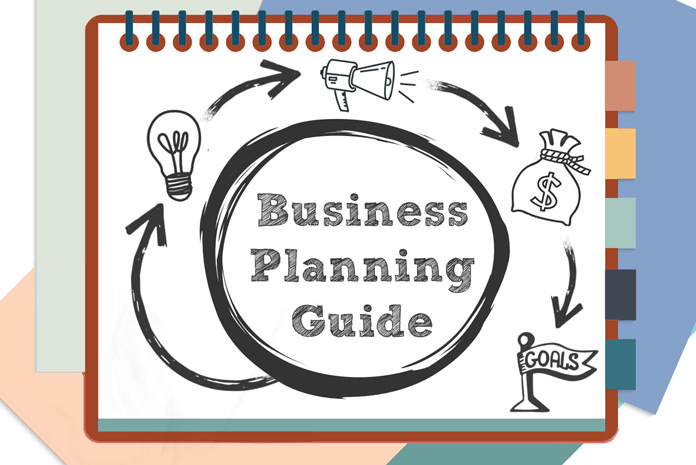Small Business Finance
Small Business Finance is the raising and managing of funds to finance and operate a new or small business. This includes banking, small business accounting, building business credit, and raising funds for your business.

Small Business Finance Basics
Recommended Tax Software
Recommended: Having the right accounting software can save your business thousands of dollars in taxes each year and help with financial questions.
Understanding Small Business Finance Basics
Understanding the basics of small business finance can help you grow the value of your business and potentially save you from making mistakes.
From knowing how to open a business bank account to collecting payment, getting funded, and keeping track of it all, we’ve got you covered.
Here’s a list of common business finance terms to help get you started with the topics covered in our guides.
Small Business Banking
Opening a business checking account is one of the first things you will need to do as a new business. Business banking is a fundamental asset protection requirement for every business and, depending on your needs, may include checking accounts, savings accounts, credit cards, and merchant accounts.
Every new and small business needs a business bank account to pay their business insurance, take care of payroll, collect money, and enroll with a merchant account to accept credit card payments.
Check out our guide on the Best Banks for Small Business for help finding a banking account for your business.
Small Business Accounting
In order to manage a business, you must also know the basics of small business accounting.
Although there are a number of options for managing your accounting, such as hiring a bookkeeper or accountant or using small business accounting software, you still should have a basic grasp of small business accounting.
One of the first things you should consider when setting up the accounting side of your small business is choosing an accounting method.
The two methods of accounting are cash basis and accrual basis. After this, the next step is to compile a chart of accounts, which is a list of all your business’s transactions.
Small Business Funding Options
When planning your business, you should determine what types of business funding options your company will need and when. Whether you are starting a low-cost business or starting a high growth startup, knowing when to get funding and what kind of funding you need is important.
The most common types of business funding are:
Building Business Credit
Building business credit involves establishing your business’s fundability, getting listed with business credit bureaus like Dun & Bradstreet, and partnering with companies that help build business credit.
Building a good business credit score proves to vendors, lenders, and credit issuers that your business is a legitimate entity separate from its owners and is capable of paying back its debts.
Learn how to set up business credit for the first time to learn which mistakes to avoid, how to use net-30 vendors to build credit, and how to build your personal credit first to then start building your business credit.
Obsidian Bear Funding has a course designed to help businesses build their credit score to become lendable, bankable, and establish better lines of credit.
Small Business Finance Definitions
Below are some of the most common terms you’ll come across when learning about small business finance:
Accounts Payable (AP) - Accounts payable refers to any money owed to your creditors, lenders, suppliers, and vendors. These are your business's liabilities. This may include both short-term and long-term obligations.
Accounts Receivable (AR) - Accounts receivable refers to any money owed to your businesses for your products or services. This occurs when your business sells anything on credit. Accounts Receivable are typically considered short-term assets.
Annual Percentage Rate (APR) - The annual percentage rate is the total cost of a loan in terms of the total annual interest percentage. This includes the interest rate, along with any other fees such as an origination fee.
Assets - Assets are everything that your business owns. This could include land and buildings, equipment, machinery, inventory, accounts receivable, and cash.
Balance Sheet - The balance sheet is a financial statement that serves as a “snapshot” of your company’s worth at a specific point in time. It is one of the three key financial statements used to describe your company’s financial health and projections. Typically presented as the balance at the beginning and ending of a period, the balance sheet describes your company’s assets, liabilities, and the equity invested in your venture.
Bootstrapping - Bootstrapping refers to starting a business with what you have. Using personal funds, resources you already have access to, and the revenue from early sales.
Cash Flow - The cash flow statement is a financial statement that shows when and where cash flows within your company. It describes how cash flows in and out of your company from operating, investing, and financing activities. The cash flow statement is also one of the three key financial statements that depict the financial health and projections of your company by showing how much cash you have on hand at any single point in time.
Cost of Goods Sold (COGS) - The cost of goods sold is the total labor and material costs required to produce your product or deliver your service.
Debt Financing - Debt financing is raising money for your venture by taking on debt. This is the most common form of financing new businesses and includes the proceeds of loans, credit cards, and lines of credit. While debt financing must be repaid, it allows you to finance your company without giving up equity in return, making it an attractive funding option for new businesses.
Debt Service Coverage Ratio - The debt service coverage ratio is the amount of net operating income that your company has to cover paying or servicing your debt. To calculate your debt service coverage ratio, simply divide your annual net operating income by your annual debt payment. Debt service coverage ratios over one suggest that your company is earning enough net operating income to cover your annual payments and interest.
Equity Financing - Equity financing is raising money for your venture by selling a portion of your business to investors. These investors may include family, friends, angel investors, venture capitalists, and even crowdfunders.
Financial Statements - Financial statements refer to a collection of statements that are used to measure the financial health and performance of your business. The three key financial statements used in planning, operating, and measuring your company’s operations and performance are the balance sheet, the cash flow statement, and the income statement.
Fixed Asset - Fixed assets are the long-term assets owned by your business that are not expected to be sold within the next year. Fixed assets include assets such as land and buildings, machinery, equipment, and furniture.
Fixed Interest Rate - A fixed interest rate is an interest rate that is established and agreed upon at the beginning of a loan and does not change over the life of the loan.
Floating Interest Rate - Floating interest rates, also known as adjustable interest rates or variable interest rates, are interest rates that are tied to the market interest rate and vary across the life of the loan.
Gross Margin - Your gross margin is the percentage of your total revenue that is net income. For instance, if your annual revenue is $100,000 and your net income is $15,000, your gross margin is 15% (15,000 / 100,000).
Income Statement - The income statement, also known as the profit and loss statement (P&L), depicts your company’s net income across the fiscal year. It depicts your revenues, cost of goods sold, operating expenses, and your interest, depreciation, and taxes to help you assess and determine your net income for the year.
Invoice Factoring - Invoice factoring is selling your accounts receivable to a third-party. For companies that provide credit to their customers and invoice them, invoice factoring can be a way to raise money for your company without taking on debt or selling equity.
Liabilities - Liabilities are everything that your business owes. This includes all unresolved debts, including short-term loans and long-term loans as well as outstanding rent and utility expenses.
Loan-to-Value - The loan-to-value or loan-to-value ratio is the ratio of the value of an asset in relation to the loan amount it will take to fund it or is required to pay it off. The loan-to-value asset ratio is important to lenders because it signifies their ability to recover their investment if you are unable to pay back the loan.
Personal Guarantee - A personal guarantee is a guarantee that you make to a lender or creditor that you will be personally responsible for your company’s debt or liabilities should your company not be able to pay.
Principal - The principal is one of three terms of a loan- the principal, the interest, and any fees. The principal refers to the original loan amount or the amount of the loan outstanding. The principal is used to determine the interest or fees that will be charged for any given period.
Profit & Loss Statement (P&L) - See income statement.
Retained Earnings - Retained earnings are any earnings that are retained by the business. This is what is left over after liabilities have been paid and any dividends are paid to investors.
Secured Loan - A secured loan is a loan that is protected by an asset or collateral. Car notes and mortgages are good examples of secured loans. In both cases, the lenders typically hold the title until the obligations of the loan are fulfilled.
Term Loan - A term loan is a loan of a specific amount paid back along with a specified payment schedule over a set period of time. Term loans are often paid back over a period of years, with mortgages and other long-term assets typically having payback periods of 15 to 30 years or more.
Unsecured Loan - An unsecured loan is a loan that is not protected by any type of asset or collateral. Common types of unsecured loans include personal loans, student loans, and credit cards.


